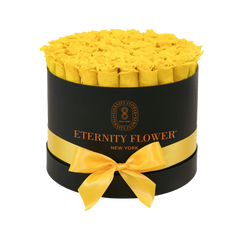When you look at your bright flower bouquet, do you ever wonder, "Are these beauties safe for my whiskered roommate?" You're in for a treat today because we're going to dive right into the world of flowers and their secret side when it comes to cats. Grab your seat belts, because this trip is going to be fun!
Are Tulips Toxic to Cats?
Alright, let's cut to the chase. Yes, those gorgeous tulips that bring a splash of color to any room do have a hidden agenda when it comes to cats. It turns out, tulips are part of the not-so-feline-friendly plant club.
Why are Tulips Poisoning Cats?

Here's what's going on: For cats, tulips are like a red flag: they contain chemicals that make them feel bad, even though they smell good to people. The main bad guy in this story is a group of chemicals called tulipalin A and tulipalin B that are found in tulips, mostly in the bulb.
These chemicals are like kryptonite for plants because they hurt cats so badly. When these poisons are eaten by your cat, they can make them feel very bad.
The most dangerous part of the plant is the bulb, which has much higher levels of these chemicals than the rest of the plant. What does this matter? In this case, these chemicals can be harmful to your cat if they get into its system. There's more to this than just a weak stomach ache
The signs can be as mild as stomach problems like vomiting and diarrhea or as serious as drooling, feeling tired, and in the worst cases, having problems with heart or lungs.
Read More: Poisonous Flowers for Dogs: 5 Not-So-Friendly Flowers for Dogs
Cat Tulip Toxicity Signs and Symptoms

It can be hard to have cats and plants together, especially when there are tulips around. Here are some signs that your cat might not be feeling well if it does decide to taste a flower or two:
- Tummy Troubles: Vomiting or diarrhea can be one of the first signs that your cat has munched on something they shouldn't have.
- Mouth Misery: Keep an eye out for drooling or signs that eating is a pain. Those tulip toxins can irritate their mouth and esophagus.
- Energy Dip: If your normally lively feline is showing less interest in playtime or seems generally under the weather, it could be a red flag.
- Breathing Blues: In more severe cases, you might notice difficulties in breathing or increased respiratory rate.
Spotting these symptoms early can be a game-changer in managing tulip toxicity in cats.
Diagnosis

When it comes to diagnosing a cat that has potentially ingested part of a tulip or any other toxic plant, veterinarians follow a systematic approach to ensure accurate identification and appropriate treatment. Here's a closer look at the steps involved:
Initial Evaluation and History Taking
- Clinical Signs Observation: Veterinarians start by observing any clinical signs of toxicity, such as vomiting, diarrhea, excessive drooling, or lethargy. These symptoms can provide initial clues about the severity of the situation.
- Comprehensive History: A detailed history is crucial. This includes questions about access to tulips or other plants, the amount and part of the plant ingested, and the timing of the ingestion. Knowing whether a cat has had outdoor access can also be relevant.
Physical Examination
- Thorough Physical Check-up: A complete physical examination helps assess the cat's overall health and identify any immediate concerns. The vet will check for dehydration, oral irritation, or other physical signs that indicate plant toxicity.
Read More: Petals and Paws: Are Roses Toxic to Dogs? Let's Dig In!
Diagnostic Testing
- Blood and Urine Tests: To further assess the cat's condition, blood and urine tests may be conducted. These can help determine the extent of the toxicity's impact on the cat's internal organs.
- Imaging Studies: In some cases, imaging studies like X-rays or ultrasounds are necessary to rule out other causes of the symptoms or to check for complications such as intestinal blockage.
Specific Tests for Plant Toxins
- Plant Material Identification: If any plant material is present in the vomit or stool, it can sometimes be identified to confirm the source of toxicity.
- Toxin Assays: Although not always available for all plants, specific tests for certain toxins may be performed if the plant ingested is known and such a test exists.
Figuring Out the Diagnosis
After getting all the necessary information and tests, the vet will be able to come to a decision. We will treat the cat in a way that fits its needs if it turns out that the flowers poisoned it. It could mean cleaning it, making it feel better, and watching out for any problems.
It is important to know that the fastest way to get better is to get care and a diagnosis. You should take your cat to the vet right away if you think it has eaten flowers or any other plant that could be harmful. If they get the right care right away, most cats that have been poisoned by plants will get better.
Those who own cats should know these steps so they can act quickly and effectively if their furry friend decides to try something from the yard or a bouquet.
Veterinary-Approved Tips to Safeguarding Your Cat

Maintaining a pet-safe environment while indulging in your passion for gardening requires a blend of vigilance, knowledge, and strategy. Here are some tips from a vet on how to keep your cat safe without giving up your flower hobbies:
- Elevate Toxic Plants First: Veterinarian advice often starts with ways to avoid problems. Your cat is less likely to eat something dangerous if you keep tulips and other poisonous plants out of reach, like on high shelves or in rooms that are hard to get to. Cats like to climb, so make sure these places are really out of reach when they want to explore.
- Buy Cat-Friendly Flowers: Talk to your vet about plants that are safe for pets and make these the main focus of your home garden. Spider plants, Boston ferns, and some palms can live with your cat without hurting them.
- Plant Interaction Monitoring: Pay close attention to what your cat does with plants. A tip from veterinarians is to introduce plants one at a time so that you can see if there are any bad effects or too much interest. This way, you can act quickly if necessary.
- Expand Our Knowledge: Make sure that everyone in your family and any guests know which plants are bad for cats and why they should stay out of your home. Knowing a lot about poisoning can help you avoid doing it by mistake.
- Use Physical Barriers: Around your plants, you might want to put up real barriers like pet gates or decorative grates. When you have animals that like to eat plants, veterinarians often suggest this method because it physically stops their access while still letting you enjoy your plants.
- Plant Placement Strategy: Plants should be put in places your cat doesn't go as often or behind things they can't get over. "Catio" spaces, which are private patio areas made just for cats and keep indoor plants and pets separate, work well for some pet owners.
- Maintain Health Monitoring: Regular check-ups with the doctor are very important for finding health problems early on. Know the signs that your cat has eaten a poisonous plant, like vomiting, diarrhea, being tired, or losing its appetite, and take your cat to the vet right away if you think it has.
- Immediate Veterinary Consultation for Suspected Ingestion: If you think your cat has eaten a poisonous plant part, call your vet or the ASPCA Animal Poison Control Center right away. In these cases, you need to act quickly.
If you follow these tips, which have been approved by a vet, you'll be able to make a living space that is good for both you and your cat. Always put your pets' safety first, but you can have the best of both worlds if you plan ahead and take extra care.
Read More: Poisonous Flowers for Cats: A Guide to Feline-Safe Gardening
Conclusion
So, are tulips toxic to cats? Sadly yes, tulips are toxic to cats. But that doesn't mean you can't enjoy their vibrant beauty safely. By being aware and cautious, you can still create a colorful, plant-filled paradise that's safe for your whiskered companions. Keep those tulips out of reach of your pets, and make sure your home stays a safe place for everyone. Let's keep our pets safe and our homes full of flowers!



























